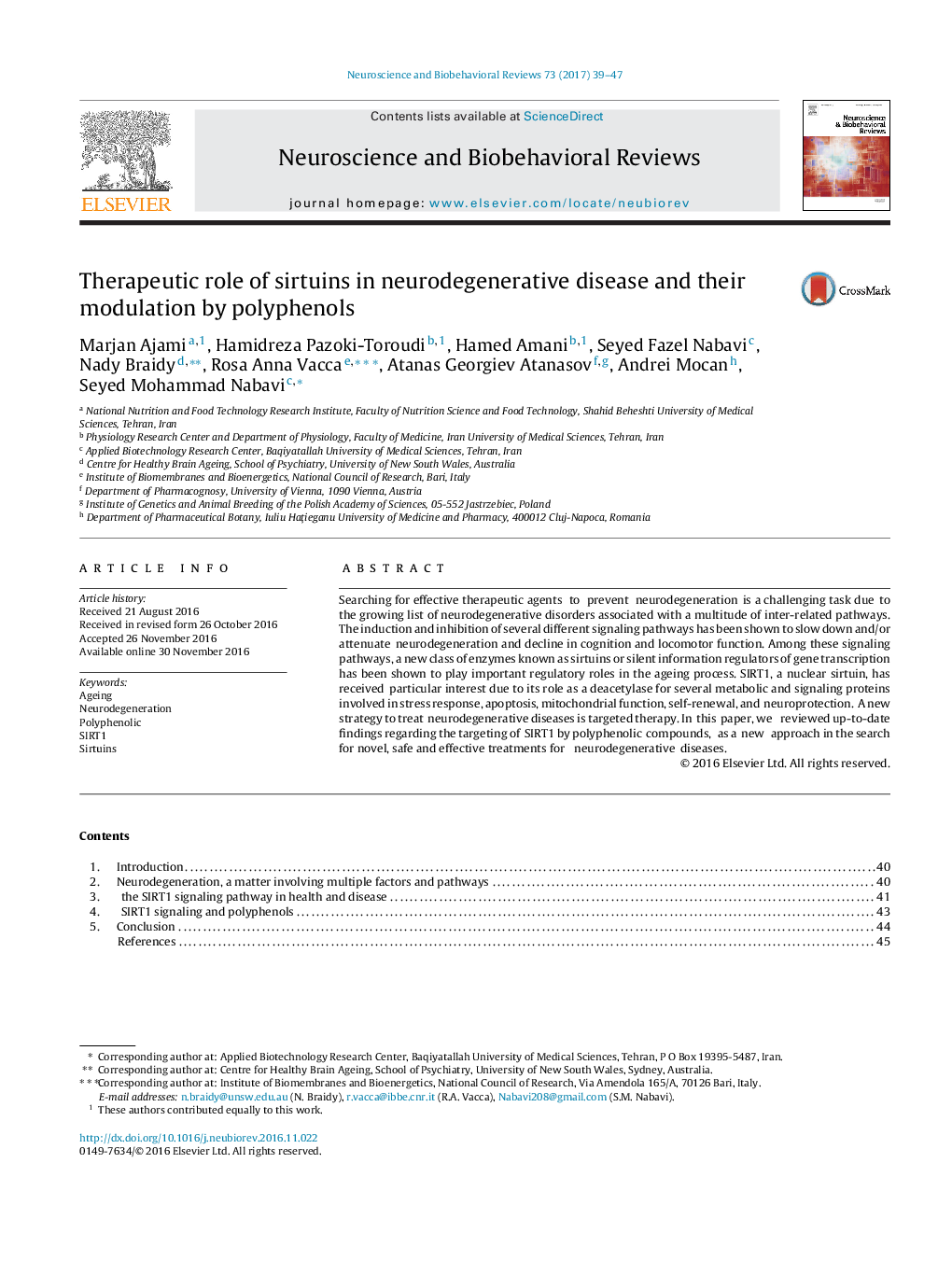| کد مقاله | کد نشریه | سال انتشار | مقاله انگلیسی | نسخه تمام متن |
|---|---|---|---|---|
| 5043529 | 1475297 | 2017 | 9 صفحه PDF | دانلود رایگان |
- Sirtuins play an important regulatory role in the ageing processes in humans.
- SIRT1-mediated neuroprotection has been attributed to its deacetylase activity.
- Extensive evidences show the therapeutic effects of polyphenols on neurodegeneration.
- Can polyphenols mitigate neurodegentation by targeting of SIRT1 pathway?
Searching for effective therapeutic agentsââ to ââpreventâ âneurodegeneration âis a challenging task due âto âthe growing list of neurodegenerative disorders associated with a multitude of inter-related pathways.â The induction and inhibition of several different signaling pathways has been shown to slow down and/or attenuate âneurodegeneration and decline in cognition and locomotor function. Among these signaling pathways, a new class of enzymes known as sirtuins or silent information regulators of gene transcription has been shown to play important regulatory roles in the ageing process. SIRT1, a nuclear sirtuin, has received âparticular interest due to its role as a deacetylase for several metabolic and signaling proteins involved in stress response, apoptosis, mitochondrial function, self-renewal, and âneuroprotection. âA new strategy to treat âneurodegenerative diseases is targeted therapy. In âthis âpaper, weâ â reviewed up-to-date findings regarding the targeting of âSIRT1 by polyphenolic âcompounds,â âas a ânew ââapproach in the search for novel, safe and effective treatments for â âneurodegenerative âdiseases. â
Journal: Neuroscience & Biobehavioral Reviews - Volume 73, February 2017, Pages 39-47
